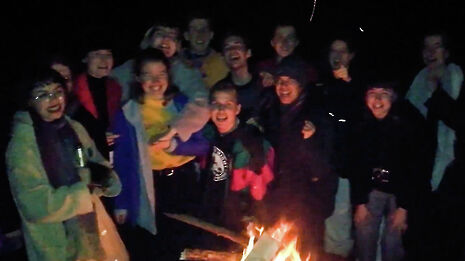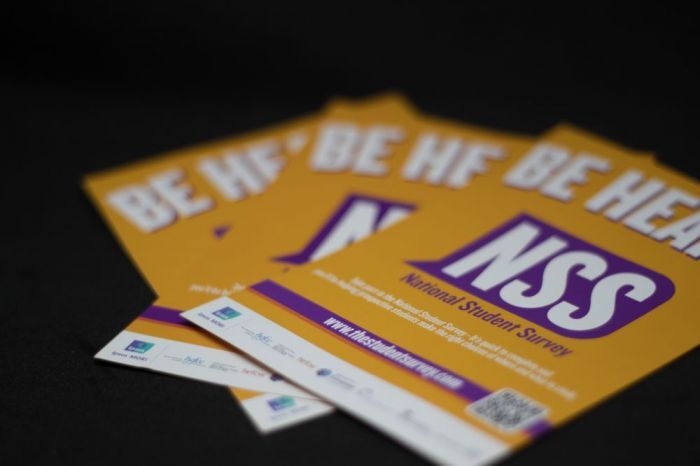Cambridge Defend Education burn NSS leaflets in boycott stunt
The activist group claim that the survey’s link with the Teaching Excellence Framework will allow the university to raise tuition fees

Cambridge Defend Education (CDE) staged a symbolic burning of leaflets promoting the National Student Survey (NSS) on Saturday evening, as part of their campaign to boycott the survey.
The stunt, labelled a “social bonfire event”, made use of a fire pit near the car park for Lammas Land to burn the yellow flyers distributed to promote the NSS, which is commissioned every year by the government’s Higher Education Council for England (HEFCE) and sent to all final-year undergraduate students at UK universities.
The NSS is one of three metrics used to evaluate higher education institutions under the Teaching Excellence Framework (TEF). The TEF connects university performance with tuition fees by ranking universities into gold, silver and bronze categories. Controversially, those awarded gold and silver may then be allowed to raise their tuition fees. After a House of Commons vote last April, the link between the TEF and tuition fees will only be introduced in 2020, and will require an independent review of the TEF to be presented to parliament.
However, the NSS predates the TEF, providing a metric for student satisfaction since 2005. Writing in Varsity this week, the University’s Pro-Vice-Chancellor for Education, Graham Virgo, urged students to complete the NSS, arguing that the University uses the NSS results to “identify and remedy areas of concern” and that “whilst the Teaching Excellence Framework is controversial, it does mean that there has been a renewed focus on the quality of teaching and learning at universities.”
In addition to student feedback, the NSS is also used to evaluate satisfaction with student unions, an area in which CUSU has traditionally performed poorly. In 2016, just 37% of Cambridge respondents said that they were ‘satisfied’ with their student union.
CUSU will join CDE in this year’s boycott, as mandated by a 2017 council vote, with a statement on their website arguing that “boycotting the NSS remains one of our best opportunities to make a clear statement against the direction of higher education which is becoming increasingly inaccessible and elitist.”
Last year, CUSU and CDE were successful in making Cambridge one of twelve universities – including Oxford, Manchester, and Bristol – to have their results declared invalid due to an insufficient turnout, with only 68% of students partcipating in the survey.
A spokesperson from Cambridge Defend Education said that “The bonfire was a really great opportunity for students to come together and discuss how to get involved in the boycott, and to demonstrate our rejection of the NSS and all it stands for.”
 Comment / Plastic pubs: the problem with Cambridge alehouses 5 January 2026
Comment / Plastic pubs: the problem with Cambridge alehouses 5 January 2026 News / News in Brief: Postgrad accom, prestigious prizes, and public support for policies11 January 2026
News / News in Brief: Postgrad accom, prestigious prizes, and public support for policies11 January 2026 Theatre / Camdram publicity needs aquickcamfab11 January 2026
Theatre / Camdram publicity needs aquickcamfab11 January 2026 News / Cambridge academic condemns US operation against Maduro as ‘clearly internationally unlawful’10 January 2026
News / Cambridge academic condemns US operation against Maduro as ‘clearly internationally unlawful’10 January 2026 Comment / Will the town and gown divide ever truly be resolved?12 January 2026
Comment / Will the town and gown divide ever truly be resolved?12 January 2026









